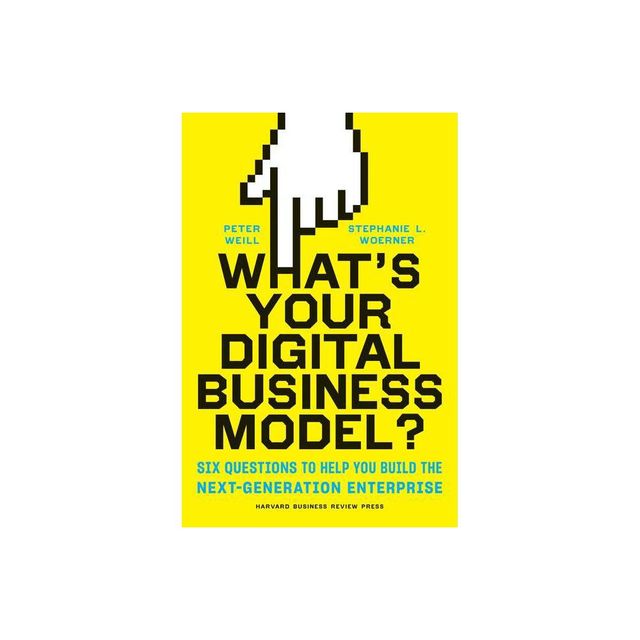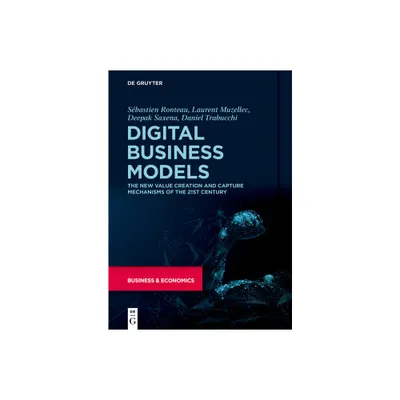Home
Digital Business Models: Concepts, Models, and the Alphabet Case Study
Loading Inventory...
Barnes and Noble
Digital Business Models: Concepts, Models, and the Alphabet Case Study
Current price: $109.99


Barnes and Noble
Digital Business Models: Concepts, Models, and the Alphabet Case Study
Current price: $109.99
Loading Inventory...
Size: OS
*Product Information may vary - to confirm product availability, pricing, and additional information please contact Barnes and Noble
The spread of the Internet into all areas of business activities has put a particular focus on business models. The digitalization of business processes is the driver of changes in company strategies and management practices alike. This textbook provides a structured and conceptual approach, allowing students and other readers to understand the commonalities and specifics of the respective business models.
The book begins with an overview of the business model concept in general by presenting the development of business models, analyzing definitions of business models and discussing the significance of the success of business model management. In turn, Chapter 2 offers insights into and explanations of the business model concept and provides the underlying approaches and ideas behind business models. Building on these foundations, Chapter 3 outlines the fundamental aspects of the digital economy.
In the following chapters the book examines various core models in thebusiness to consumer (B2C) context. The chapters follow a 4-C approach that divides the digital B2C businesses into models focusing on content, commerce, context and connection. Each chapter describes one of the four models and provides information on the respective business model types, the value chain, core assets and competencies as well as a case study. Based on the example of Google, Chapter 8 merges these approaches and describes the development of a hybrid digital business model.
Chapter 9 is dedicated to business-to-business (B2B) digital business models. It shows how companies focus on business solutions such as online provision of sourcing, sales, supportive collaboration and broker services. Chapter 10 shares insight into the innovation aspect of digital business models, presenting structures and processes of digital business model innovation. The book is rounded out by a comprehensive case study on Google/Alphabet that combines all aspects of digital business models.
Conceived as a textbook for students in advanced undergraduate courses, the book will also be useful for professionals and practitioners involved in business model innovation, and applied researchers.
The book begins with an overview of the business model concept in general by presenting the development of business models, analyzing definitions of business models and discussing the significance of the success of business model management. In turn, Chapter 2 offers insights into and explanations of the business model concept and provides the underlying approaches and ideas behind business models. Building on these foundations, Chapter 3 outlines the fundamental aspects of the digital economy.
In the following chapters the book examines various core models in thebusiness to consumer (B2C) context. The chapters follow a 4-C approach that divides the digital B2C businesses into models focusing on content, commerce, context and connection. Each chapter describes one of the four models and provides information on the respective business model types, the value chain, core assets and competencies as well as a case study. Based on the example of Google, Chapter 8 merges these approaches and describes the development of a hybrid digital business model.
Chapter 9 is dedicated to business-to-business (B2B) digital business models. It shows how companies focus on business solutions such as online provision of sourcing, sales, supportive collaboration and broker services. Chapter 10 shares insight into the innovation aspect of digital business models, presenting structures and processes of digital business model innovation. The book is rounded out by a comprehensive case study on Google/Alphabet that combines all aspects of digital business models.
Conceived as a textbook for students in advanced undergraduate courses, the book will also be useful for professionals and practitioners involved in business model innovation, and applied researchers.


















